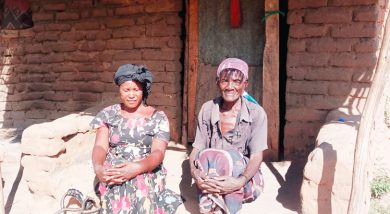Woes of landless Kasungu ex-tenants
Shadreck Kaifa recalls that he relocated from Mulanje to Kasungu with his parents when he was only five-years old.
His parents were part of the local migrant workers from various districts to Kasungu to work in tobacco estates under Press Agriculture Limited (PAL). Kaifa, now in his early 40s, knows no other place to call home than the shacks in PAL’s estates in Kasungu.
“I grew up here and just like my parents, got employed by PAL to work in the estates,” he says.
When PAL was winding up tobacco production in 2010, all the workers were laid off and paid their dues to return to their home districts. But a large group of them were young ones, some born and bred in the estates’ compounds.

“I was given K18 000 as terminal benefits, but I decided to stay because I had no clue where my parents came from,” says Kaifa, who lost both parents more than two decades ago.
Many of the workers remained in four estates owned by PAL. They are estimated to be part of 800 households who are homeless and landless after PAL evicted them from its land for illegal encroachment.
At times, PAL has used court orders to destroy crops and demolish their houses to evict them from the land.
Since 1970, PAL was the largest company growing burley and flue-cured tobacco in the country.
The labour-intensive tobacco production attracted a large workforce mainly from other districts.
“The company used the tenancy system in which workers returned to their homes at the end of every growing season,” says Charles Nyoni, one of the top officials at PAL.
In 1993, PAL stopped growing burley tobacco after the tenancy system proved costly and the tenants were given a chance to return to their home districts.
In 2010, the company also stopped growing flue-cured tobacco. By that time, the workers were direct employees.
Beatrice Msonthi is one of the victims and says she was born in Kasungu and remembers that her parents were from Lilongwe.
“My parents decided to stay here after they were laid off. I became of age and got married. This is the closest place I call home but we have been chased out for several times,” Msonthi says.
She adds that they have lived in several places temporarily, including in some parts of neighbouring Zambia, Kasungu National Park and a transit camp at Nthunduwala in Kasungu.
Millennium Information Resource Centre (Mirece), a local human rights civil society organisation in Kasungu, has been fighting for their rights. Its executive director Reverend Flywell Somanje has been at the centre of helping these people to have land for their proper settlement.
One of his actions was to write a letter to PAL requesting a meeting with the ex-tenants. But PAL never granted them the meeting. According to Nyoni, PAL disregarded the request because it bypassed the district commissioner (DC).
The reverend, who excused himself from church duties to pursue his new role of activism, says he also wrote the DC’s office and the Office of the President and Cabinet (OPC).
“I came to their help because no one was paying attention to their suffering,” says Somanje. “I am doing this out of compassion.”
In January 2016, Somanje is said to have cycled from Kasungu to the State House in Lilongwe to present a petition about the land issue. But he was advised to submit the petition to OPC.
Part of the message in the petition stated that the ex-tenants were staying in seven different camps dispersed across the district, a development that resulted in OPC sending its officials to Kasungu for a fact-finding mission.
OPC deputy director of administration Victor Sandikonda was part of the team that visited Kasungu to establish facts about the matter.
“Our mission established that there were no camps as claimed by Reverend Somanje’s petition,” Sandikonda says.
Kasungu District Council acknowledges that it is aware of the land issue between PAL and the ex-tenants but says the report that went to OPC had distorted information about the settlement camps.
“We only know about the Nthunduwala Camp. This camp was set up when people were repatriated from Zambia after being chased away from their encroachment in Kasungu National Park,” says Thomas Mwafongo, director of administration at the council.
He adds that the rest of the camps were just assembly points where people gathered for their meetings, which Reverend Somanje himself also attended.
“It has been established that Mirece has members who were promised land and they paid K10 000 each. It took some of these people to Mchinji where he claims to have found land at Lusa Estate,” Mwafongo says.
There might be a light at the end of the tunnel for the ex-tenants in their attempt to secure land for settlement.
Malawi Human Rights Commission (MHRC) has intervened to resolve the issue. Recently, one of its commissioners Bertha Sefu convened a meeting involving both parties and made some recommendations that elated the ex-tenants.
During the meeting, it was announced that PAL had given government land, the size of five estates to be allocated to the people.
“These people have a right to land and for all their challenges, they deserve better,” Sefu said.
She proposed that PAL, the office of the DC and OPC should sit down and discuss how best they would distribute the land to the families.
Another recommendation was a speedy commencement of the process without involving third parties such as Reverend Somanje.
For people like Kaifa, they can now hope for the best.
“I am happy, I can’t wait to have a permanent home of my own and enjoy the comfort of life,” Kaifa says.





